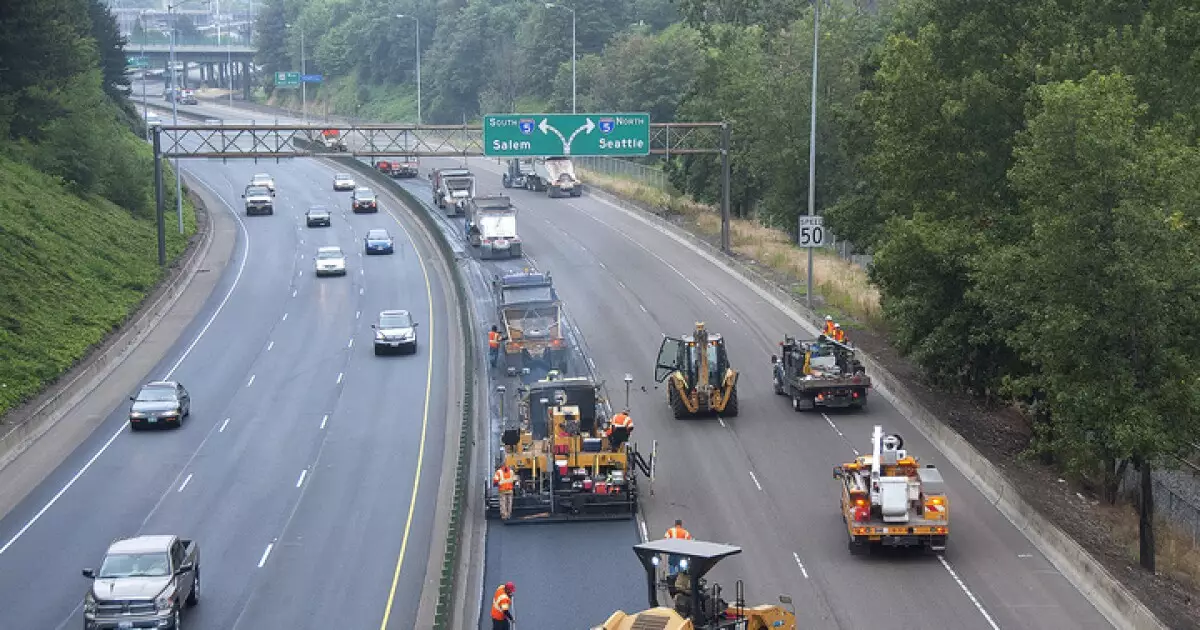The passage of House Bill 2025 in Oregon threatens to reshape the state’s economy through a staggering $14.6 billion tax and fee increase over the next ten years. This is not just an incremental bump in funding for transport; it is an audacious attempt by state legislators to usher in what they are calling “transformative investment.” However, what lies underneath this cloak of altruism is a grim reality: a drastic financial burden placed on all Oregonians, particularly those who are already struggling to make ends meet.
The Illusion of Accountability
Advocates of the bill, like Senator Chris Gorsek, tout the legislation as a panacea for Oregon’s crumbling infrastructure. They promise that this funding will lead to pothole repairs, snow-cleared roads, and safer transit for citizens. Yet, there’s a profound irony in invoking accountability given that the entire process seems less democratic and more political maneuvering. The removal of dissenting voices from discussion groups—such as the ousting of Senator Mark Meek from the Joint Transportation Reinvestment Committee—raises troubling questions about whether transparency is genuinely the goal. Instead of promoting a collaborative effort to genuinely address Oregonians’ concerns, the current leadership appears steadfast in silencing opposition to their expansive projects.
Public Sentiment Ignored
Public feedback on the proposed tax increases has largely opposed the measure, with approximately 61% of residents expressing discontent according to various polls. This stark discontent is not just noise; it represents the voice of hardworking Oregonians who already feel overburdened by taxes that fail to translate into quality services. When Rep. Shelly Boshart Davis equated the bill to a “scheme” designed to fulfill the Democrats’ “transportation tax wish list,” she underscored a critical divide between political leaders and the populace they claim to serve. Forcing Oregonians to pay more for services that should already be guaranteed is not an answer; it’s a betrayal of the trust that citizens placed in their representatives.
Alternative Solutions Over Tax Increases
Interestingly, while the Democrats press forward with this financially punitive measure, Republicans have proposed an alternative that focuses on restructuring already existing funds rather than imposing new taxes. Their plan, though left largely unheard, offers a viable means to fund transportation improvements through reallocating climate relief funds. This approach draws attention to a logical truth: if the government cannot effectively manage existing resources, why should citizens be asked to dig deeper into their wallets?
The absence of dialogue around viable alternatives indicates a troubling trend in governance where party lines trump the needs of the community. Oregonians want solutions that respect their ability to contribute to society without excessive taxation. They desire roads, bridges, and public services that function effectively, without the excessive burden of unjust tax hikes.
A Call for Balanced Governance
Under Democratic governance, there is an evident predominance of fiscal irresponsibility cloaked in calls for progress. Having a majority in both legislative chambers, their attempts to push through this mega tax increase—by any means necessary—betrays the very mandate they were elected to uphold. It provides a stark illustration of the disconnect between lawmakers in Salem and the electorate they represent. A government should facilitate, not obstruct nor extort from its citizens.
In advocating for more efficient use of existing funding solutions and enhancing transparency, Oregonians expect their leaders to prioritize practicality over political ambitions. The time is ripe for politicians to remember who they work for, lest they find themselves out of touch with their constituents entirely. Ultimately, real progress hinges not on increased taxation, but on the responsible and effective management of public funds that results in genuinely improved infrastructure and services for all Oregonians.

